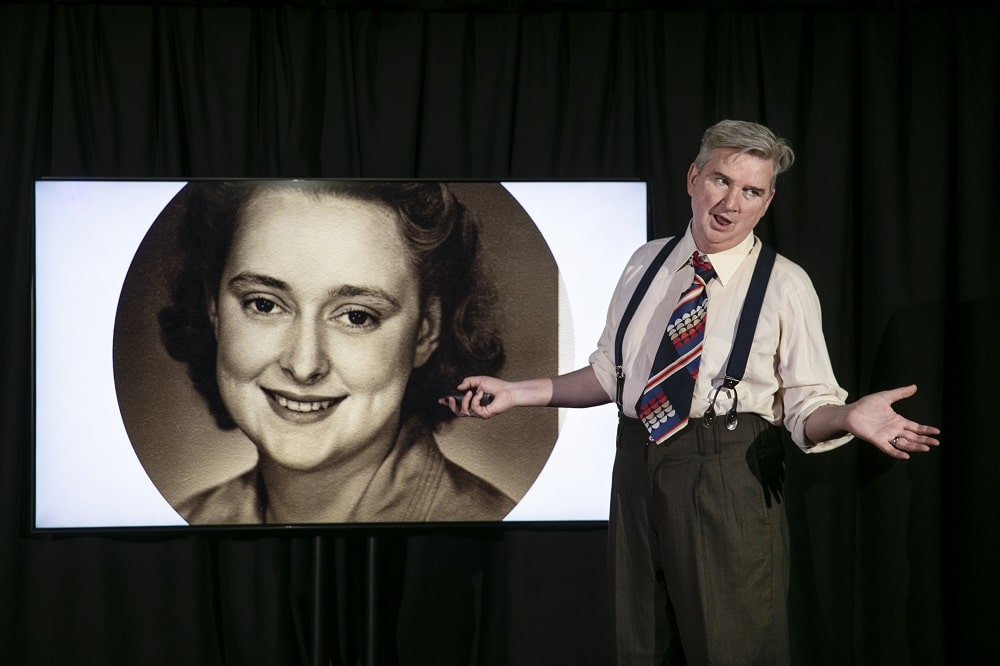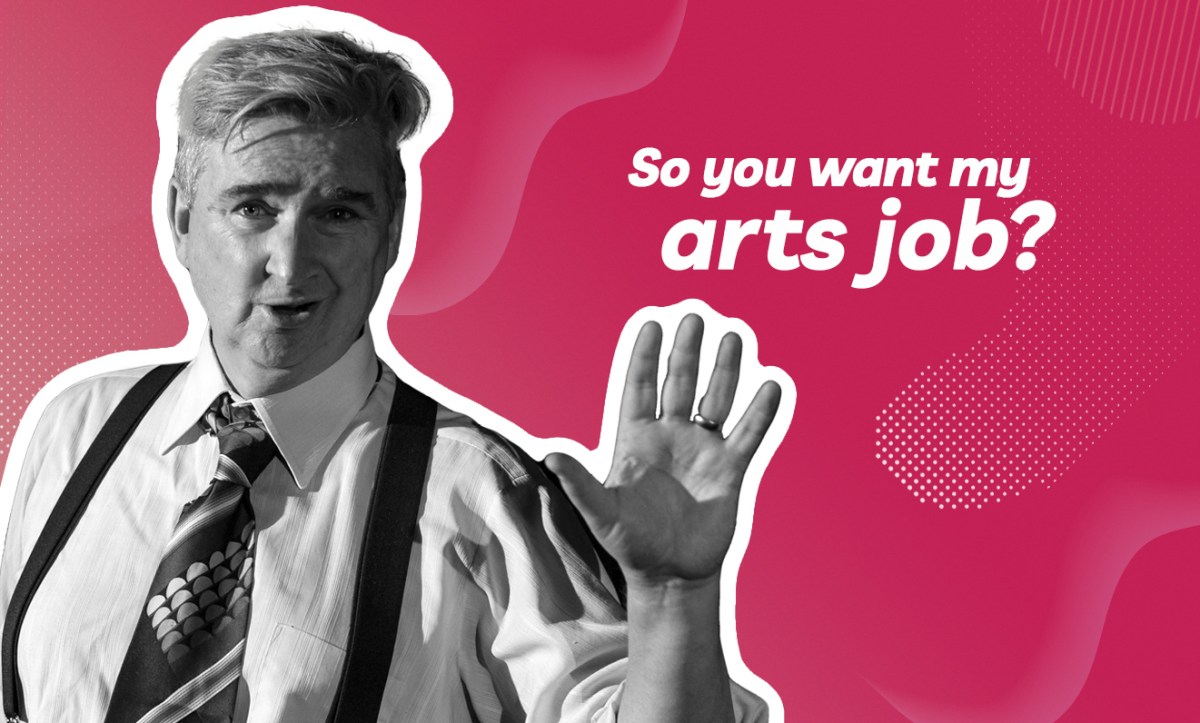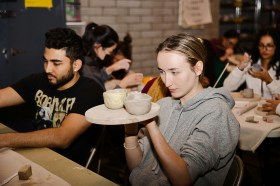Damian Callinan is a multi award-winning Australian comedian, actor and writer. He is best known to audiences as the lead actor, screenwriter and co-producer of The Merger, the 2018 feature film adaptation of his one-man show of the same name. He is also widely recognised from his work on Skithouse, Before the Game and Backyard Ashes and well as the fringe festival circuit.
How would you describe what you do to your friends and family?
My family think I moved to the Yukon in Canada for witness protection. However, I continue to work under an assumed identity under their very noses. This has allowed me to use them for material fodder with impunity. However, when I do break my cover and describe what I do, I usually tell people that I’m a comedian, actor and writer in that order. However, before I faked my Canadian relocation, my wife used to summarise my job as ‘making up shit up for a living’.
What qualifications do you need to be a comedian?
A law degree comes in handy if your material floats into litigious canals and my teaching degree has been useful when MC’ing an unruly school librarians’ conference dinner. However, aside from maybe butter sculptors and human flower artists, comedy may be the least represented art form in tertiary institutions.
How did you get your start in this career – what was your first gig?
I was a teacher for 12 years. I was primary trained, but after doing a graduate Diploma in Performing and Visual Arts, I became a specialist drama teacher and began experimenting with my artistic practice. However, my margarine-based butter sculptures weren’t being accepted in art shows and, apart from making a half decent orchid from the waist down, my human flower art was getting bad reviews. Improvisation was the medium that kick-started my career and made me realise I may be able to translate my sense of humour onto the stage. I tried various theatrical forms, but it was after I started doing stand-up that a career became a possibility. Within a year of my first gig, I’d won an award to perform at the Edinburgh Fringe and that gave me the confidence to keep going. Sorry? … My first gig? It was at the Espy in St Kilda at an open mic show called The Waiting Room. I died so badly there were funeral directors waiting with brochures in the green room when I walked offstage.
How collaborative is comedy?
Why? Who wants to know…? Despite the seemingly isolated nature of live comedic performance, I’ve always enjoyed collaborations. I’ve made around 15 solo shows and love the freedom of working alone. However, even solo performance involves some form of artistic alliance, working with sound designers, directors, producers, graphic designers and former butter sculptor peers. My career highlight to date was adapting my solo show The Merger into a feature film, collaborating with hundreds of people in the process. Seeing production designers, make-up artists, key grips, set dressers and animal handlers bring my words to life filled me with immense pride … until the goat pissed all over my costume.

What’s an average week like for a comedian?
I once had a work experience kid follow me around for a week. By the Wednesday they swapped their placement to working in a florist as, by the time I got up and started work, they usually had to go home.
What’s the most common misconception about being a comedian?
That we sleep in.
In an interview for your job, what skills or qualities would you be looking for?
I’m looking for someone who realises that they shouldn’t be doing a job interview for this particular job.
What’s changing in your professional area today?
I tried introducing compulsory saluting to senior comedians, but the newcomers didn’t know who we were, so it didn’t catch on. On the plus side, the pathways to breaking through as a career comedian are more varied than when I first began. This is great as it keeps more comedic minds in the game.
When I first began, funny people who perhaps weren’t as adept at the performance side of stand-up comedy would be lost to the industry or, worse, became comedy writers and never saw sunshine again. However, now through mediums like web series, podcasts, TikTok etc, there are more avenues to explore, and more people are finding their voice.
Within the industry, there is pressure to adapt, keep pace and remain relevant within the realms of social media. I have adapted to a large degree, but the tricky part I’ve found is adequately monetising all the strands of your work to justify the time spent creating the content. You also can’t do everything well, so it’s best to pick a few lanes and stay in those.
Having said that, in recent times I’ve published a kids’ book, made a film, created a meta podcast, started a new subscriber blog and I’m shopping around a new comedy TV series I’ve written, so maybe don’t listen to me.
What about gender balance in your industry?
There has been a marked change in the range of voices in Australian comedy since I started 25 years ago (which is in line with global trends). Diversity in ethnicity, gender and neurodivergence continues to not only be more representative of our population, but also makes the comedy scene much more interesting. Festival award nominees over recent years reflect this change. There continue to be some venues and presenters that don’t make enough effort to make their venues safe and welcoming for female, non-binary and transexual comics, but it is easier to avoid those particular chuckle shacks. Although, I can’t help but think that I may not be the best person to be asking this question.
Your latest show Double Feature is based on your parents’ diaries – how challenging has it been to create comedy out of their personal lives?
We found Mum’s 1946 diary on the night of Dad’s funeral. With them both now gone, it was such a gift to be granted this suite of new memories that charts the flowering of their new love. This was the key that unlocked the door to me recognising that theirs was a story worth telling.
Finding it as we did, hidden among the endless volumes of Dad’s retirement diaries, I began to picture the story as a Hollywood romance, in the style of the very film titles Mum so assiduously noted in her diary. Once I came up with the idea of combining his diaries to provide a split narrative, the full structure came together, and the comedy began to flow. I could do an entire show just based on the minutes from the weekly staff meetings he foisted on Mum after he retired as a school principal. However, the greatest challenge came in getting the balance right between the romance, the comedy and the tragedy that so devastatingly ended their beautiful 58-year marriage. I’ve traversed comedy and pathos many times in my solo shows and screenwriting, but my own personal connection to this story added another layer of complexity to the writing and performance.
Read: So you want my arts job: cruise entertainer
As difficult as it is to mine that element of the show each night, I still revel in telling their story. It feels a bit Weekend at Bernies to say this, but I’m really enjoying taking Mum and Dad on tour again – without the annoyance of Dad deciding to sit on the toilet for 20 minutes just as we’re about to leave.





